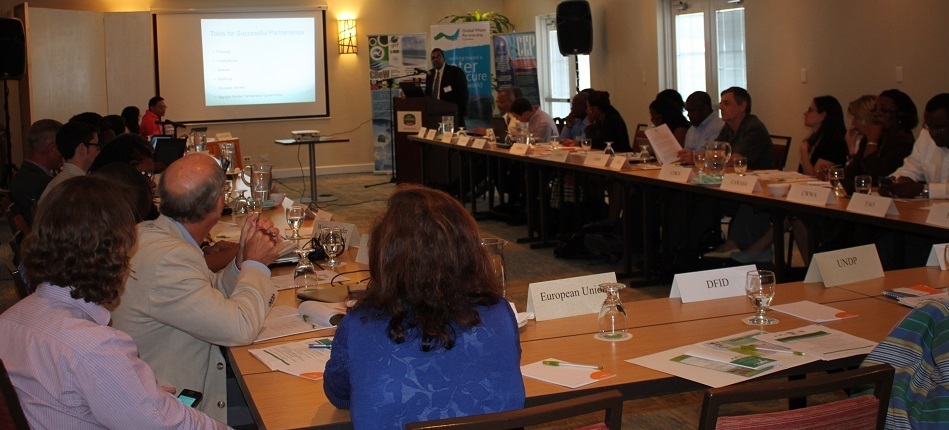
Cross-section of participants at the Meeting of Regional Partners in Water and Wastewater held in Barbados on April 28th and 29th, 2014.
The two-day Meeting of Regional Partners in Water and Wastewater sought to provide a platform for participating organisations to critically explore ways of strengthening their collaboration to improve water security in the region. The Meeting kicked-off with welcome remarks from representatives from the GWP-C and the UNEP-CAR/RCU, all of whom expressed the major significance of a Meeting of this nature. The meeting was co-funded through the GWP-C Water, Climate and Development Programme (WACDEP) and the GEF CReW Project; it is one of a number of WACDEP activities aimed at advancing regional cooperation in climate change adaptation and water security in the context of regional and economic development.
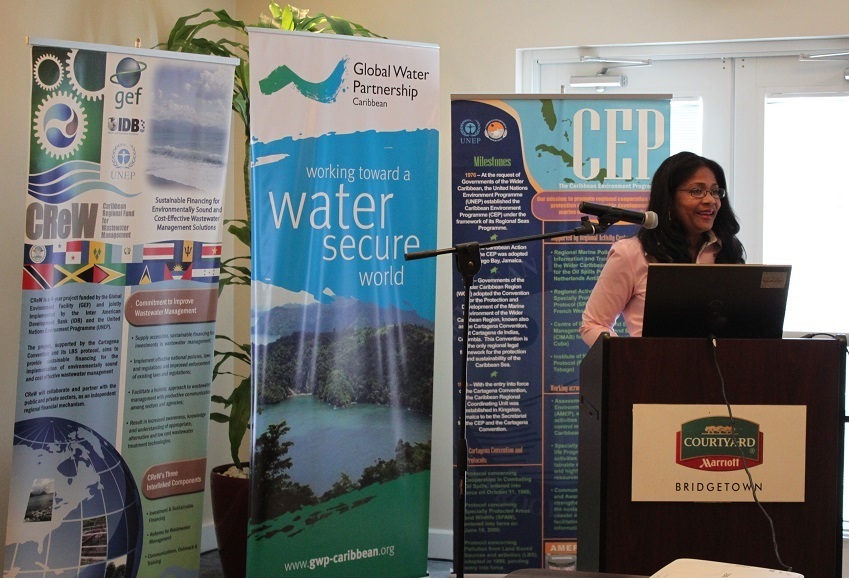
Ms. Judy Daniel, Chair of the GWP-C is seen here delivering remarks to participants at the opening of the Meeting.
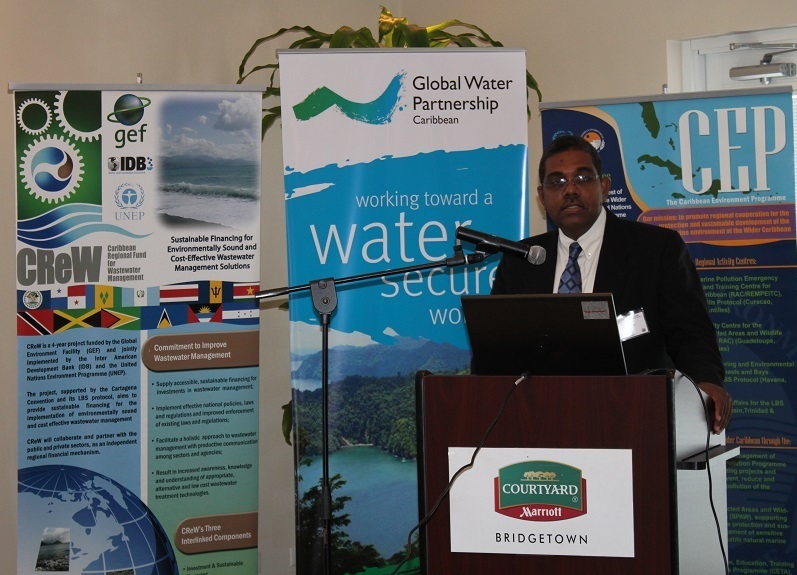
Mr. Wayne Joseph, Regional Coordinator of the GWP-C is seen here delivering a short presentation on Partnerships.
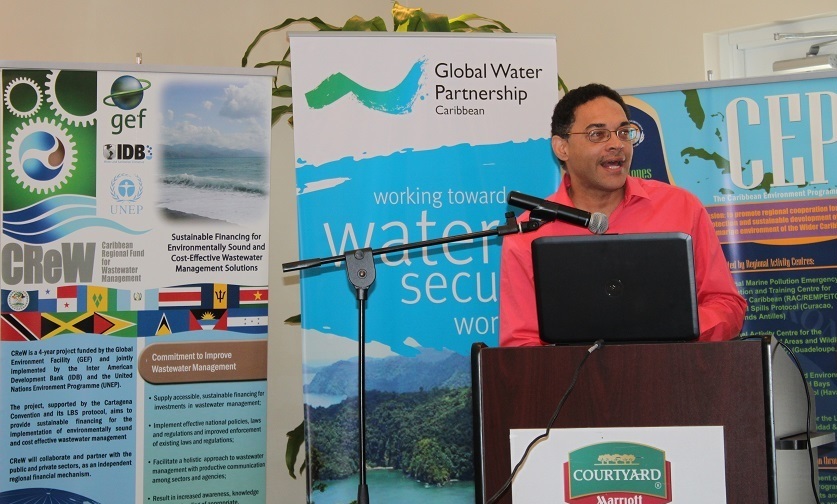
Mr. Christopher Corbin, Programme Officer at UNEP-CAR/RCU is seen here delivering welcome remarks at the Meeting.
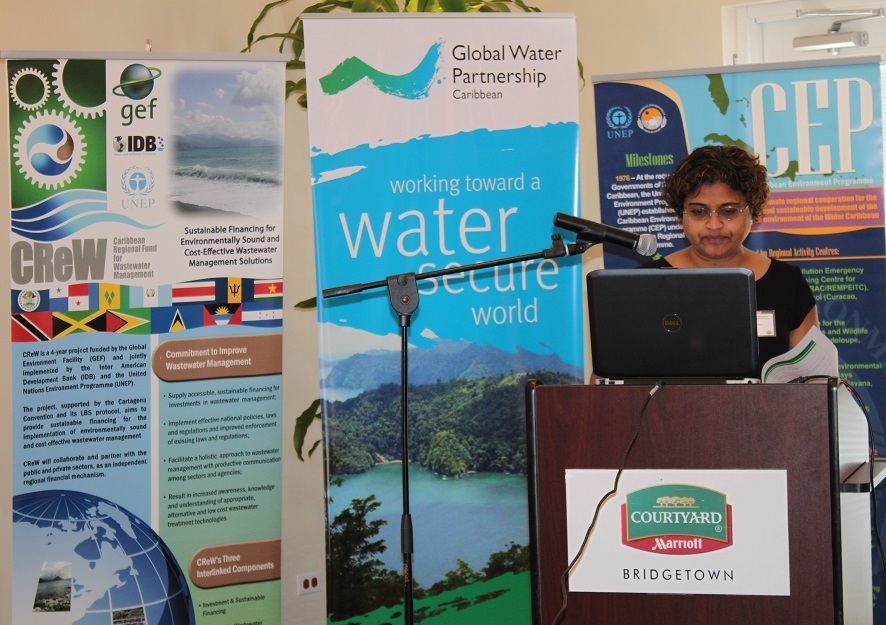
Dr. Natalie Boodram, Programme Manager of the GWP-C Water, Climate and Development Programme (WACDEP) is seen here providing an outline of the meeting to participants.
From the onset, it was clear that the participating agencies were very interested in attaining concrete actions from their discussions and had the common purpose of raising the profile of water and wastewater in the Caribbean. This was evident, as participants were able to introduce themselves and were given the opportunity to openly express their expectations for the Meeting. Some of their expectations included:
- Finding out what participating agencies are doing in terms of programmes and projects in the region on water and wastewater
- Understanding the mandates of participating organisations
- Strengthening the work in areas of water and wastewater in the region
- Identifying opportunities for collaboration and synergies
- Identifying opportunities for developing various programmes at the university level
- Greater investment in capacity building
- Keeping health in discussions of water and wastewater management
- Establishment of more programmes in the region
- Actions that are implementable
- Considerations for gender issues
- Developing a single regional programme for water
- Learning lessons from the region
- The need for greater knowledge sharing among agencies
The Meeting was structured in a very interactive way which facilitated a lot of plenary discussions, as well as, productive working group sessions. Before participants were broken-up into various groups to address key issues to strengthen their collaboration, they were briefed on the key objectives of the Meeting which were:
- To build on past regional coordination initiatives, partnerships and activities for Integrated Water Resources Management (IWRM) such as the Caribbean Community (CARICOM) Consortium on Water which was established in 2010 with a mandate to develop a Common Water Framework for its member states in order to rationalise and coordinate the region’s programmes and activities in the areas of water resources management.
- Explore and examine the role of partnerships for improving wastewater management as part of IWRM in the Caribbean.
- Look closely at the role of partnerships in promoting water security in light of climate change and climate variability.
- Agree on a way forward to facilitate more effective collaboration.
There were two (2) major group exercises over the two-day Meeting which enabled participants to share information on various activities and projects that their respective agencies are currently undertaking or planning to undertake in the next year. The results of this exercise painted a clear picture of the top four (4) key priority areas for collaborating among the agencies. These included:
1. Policy Reform
2. Data and Information for Decision-Making
3. Targeted Interventions
4. Capacity Building
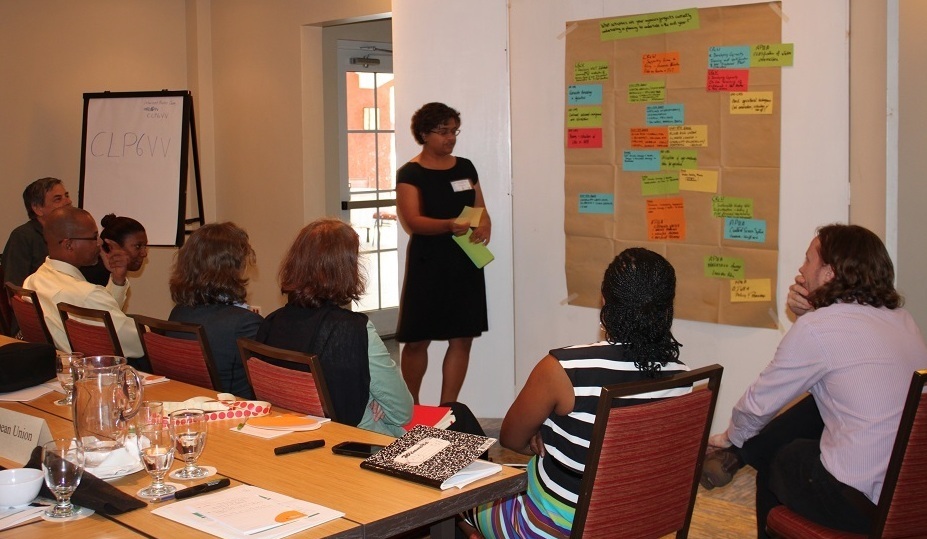
Some participants are seen here discussing activities and projects that their respective agencies are currently undertaking or planning to undertake in the next year.
With the top four (4) areas identified, participants were then broken-up into groups to critically examine each area to determine ways in which collaboration could take place in these areas; what resources would be needed, as well as, identifying any barriers or constraints.
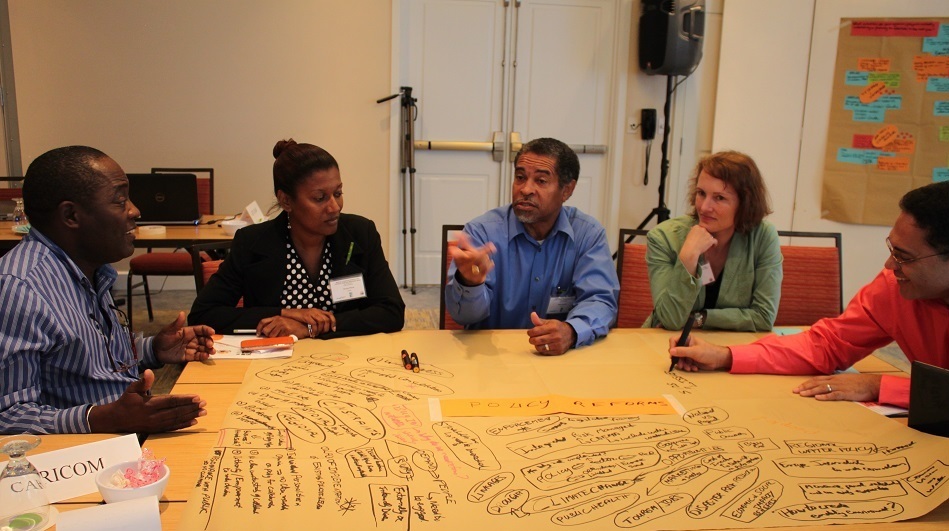
Some participants are seen here listing the ways in which collaboration can take place amongst the various agencies under the top four (4) priority areas identified.
The Meeting was well structured and at all times remained focused on ways in which participating agencies could work together to strengthen their collaboration in water and wastewater management in the Caribbean. The Meeting was deemed a success by participating organisations who through their inputs will contribute to a roadmap for collaboration among agencies in water and wastewater in the region.
The inputs from participating agencies are being collated by the GWP-C and will be shared with these organisations, identifying opportunities to continue to strengthen regional cooperation in the area of water and wastewater in the Caribbean.